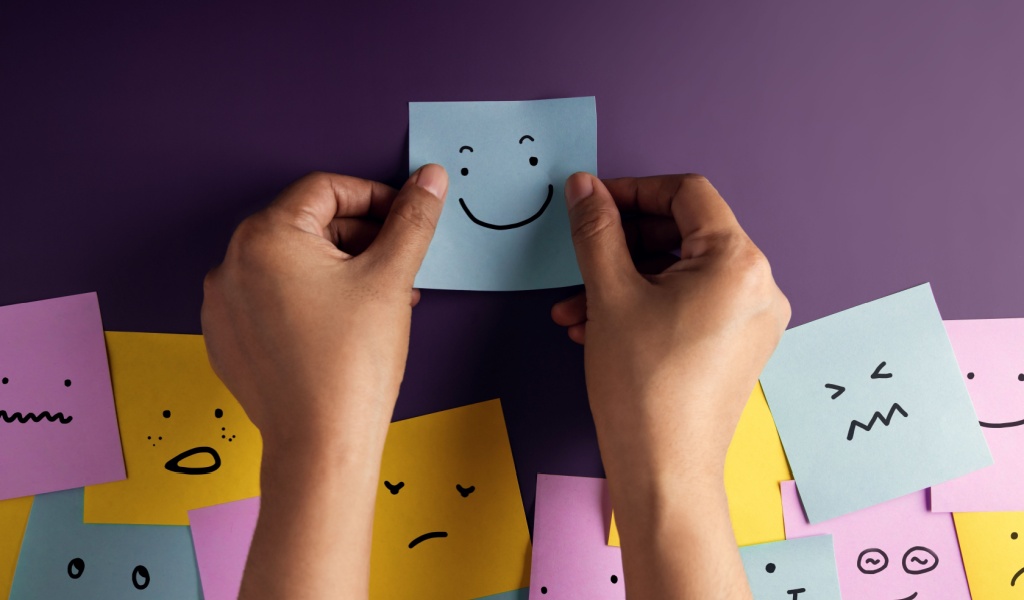Depression is widespread among people nowadays, and it almost always leads to negative thinking patterns that trap your thoughts and make you feel stagnated. However, no matter how much you think negatively, no good can come out of it; it doesn’t help prepare you to face life’s events, it cannot prevent bad outcomes, and it doesn’t ward off any difficulties that are meant to come your way. In fact, negative thinking can only lead to mental disorders, addictions, insomnia, and health issues!

Unknowingly, most of us use mental filters to subvert ourselves. Mental filters, also known as cognitive distortions, are like having a screen placed over the mind that obscures the positive side of a situation and highlights the negative aspects of it. Let’s say, for instance, you had a long walk at the beach with your partner. When you look back at that experience, do you recall how pleasant the weather was, how enjoyable it was to feel the waves lapping at your feet, or how incredible the sunset looked that day? Or, if your mental filter was turned on, did you immediately think about how the beach was so loud and crowded, how sticky your feet felt after a dip in the water, or how the wind caused your hair to be all messy?
Both of these points of view are about the same time spent at the beach, but how you recall and process it can drastically affect your mood!
So, What Is Mental Filtering?
Mental filtering is a distortion in one’s thinking patterns that tends towards the negative aspects of a situation while denying the many positives that have come from it. If left to build up, such self-defeating thoughts can cause anxiety, panic attacks, and bad emotional reasoning.
Moreover, over time, the mental filter makes you develop an automatic habit of only paying attention to the negative aspects of things more quickly, more often, and very easily. When your energy is invested in the negatives, you perceive everything from a pessimistic outlook.
How To Change Your Mindset?
The mental filter is a common trap many people fall into, but there is no foolproof way to eliminate it. However, you can lessen its impact on your life through several methods. Here’s how:
Build A Better Sense Of Awareness
When you become more conscious of your mental filter, you can pay more attention to how and when it shapes your thoughts, allowing you to shift your perspective.
Shift Your Attention To Acknowledge The Positives
There’s always a silver lining to a dark cloud. No matter how bad a situation is, there will be something optimistic you can focus on. If there are no positives, then you can at least shift your thinking towards a neutral stance rather than dwelling on its negative characteristics. Or, if you believe that you’re constantly failing, you can list your past successes. This way, you’re slowly breaking the cycle of negative thought spirals.
Start Journaling
Journaling your thoughts is a powerful way to analyze your thinking patterns. Penciling down your emotions gives you more clarity in processing them and identifying any faulty perspectives. As a result, you can build better self-awareness and promote a more positive perspective.
Practice Mindfulness
Mindfulness is great for reducing distorted thoughts. Through techniques like meditation, you can focus your mind on the present moment, reducing the power of negative thinking by fueling your awareness toward better emotional regulation.
Use Affirmations
You believe the things you say to yourself. For example, telling yourself, “I can do it,” can replace negative thoughts before a presentation or performance. Regularly using affirmations also changes how you interpret your experiences while providing a more balanced perspective.

Embrace Gratitude
When you recognize the positive aspects of life, you naturally help yourself overlook the negative aspects of situations. Consider maintaining a gratitude journal where you write down three daily things you are thankful for. Doing so allows you to reduce negative thinking and focus on the positives.
Build Stronger Emotional Awareness
Recognize, understand, and validate your feelings. This is the first step towards resilience. When you understand negative emotions, you can better address them.
Manage Stress
Stress leads people towards negative thinking, which is why it’s crucial to identify and process negative feelings to challenge distorted thinking patterns. This is one of the principles of CBT (Cognitive Behavior Therapy), where positive thinking is encouraged. Focusing on things to be optimistic about allows you to shift your perspective during difficult times.
Stay Away From Predicting Anything Negatively
If you’re inclined to think of how wrong something can become, train your mind that there could be just as many reasons for things to go right. For example, if you expect to mess up a presentation, it further fuels your pessimism and ultimately leads to a self-fulfilling prophecy. Instead, you can channel that nervous energy into confidence and assure yourself you can do it.
Don’t Be Too Rigid
When you set your expectations or standards too high in a way where there are rigid rules on how you or others should behave, you will suffer emotional consequences when your expectations are unmet. Failure to meet your goals will lead to further guilt, anger, resentment, and frustration.
Bottom Line
When you’re hardwired to see only the negatives in a situation or person, that’s all you will ever see! Your perception shapes our reality, so you get to choose how you view the world. When you’ve got your mental filter on, you end up missing anything that doesn’t fit your narrative. This can be so damaging that it can even make you fall out of love with the most important people in your life because all you ever notice are the negatives in that relationship or person.
Mental filtering can distort your reality; when this becomes a habit, it can drain your happiness and ruin your relationships. The power to reshape your thoughts lies in your hands. However, if you can’t change your negative frame of mind, it would be helpful to seek professional help from a therapist. At the end of the day, your mental health is important, so don’t let mental filtering steal the joy of being able to live your best life!



